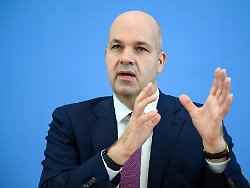“Important questions half-baked”
Economists and associations criticize the relief package
9/4/2022 3:04 p.m
Watering can instead of on target, a “completely half-baked” electricity price brake, subsidies that are too low – the government has been criticized by economists and social organizations for its plans to relieve the burden on citizens. However, they also believe that some measures are correct.
Economists are divided on the traffic light coalition’s third relief package, while social and environmental organizations are united in criticism. The head of the IFO Institute, Clemens Fuest, criticized the plans as not being accurate enough. It is positive that the federal government is “recognisably trying to let prices and thus incentives for energy saving have an effect,” said the economist of the “Bild” newspaper. However, the coalition is “partly with the watering can on the way”.
The relief in electricity prices will also benefit households with higher incomes, which could bear the electricity prices themselves. The tax and duty exemption does not make sense, the state should leave wage setting to the collective bargaining partners.
In the eyes of DIW boss Marcel Fratzscher, the package “contains good elements, but is immature on important issues, distributes funds too much according to the watering can principle and ignores climate protection”. When it came to the most important challenge, limiting electricity and gas prices, the government failed to find a solution, he told the “Augsburger Allgemeine”. The electricity price brake is “completely half-baked”, it will only be possible to implement it in many months, if at all. And it leaves many questions unanswered, for example how basic consumption should be defined. “The federal government is linking the electricity price brake to the skimming off of excess profits without presenting a plan on how this is to be done.” The strength of the package lies in increasing benefits for the most vulnerable people.
Praise from the Economics Grimm
The economy Veronika Grimm, however, praised the relief package in an initial reaction. The government is thus “taking into account the fact that the burdens caused by the current crisis will be immense, in particular due to the high energy costs,” Grimm told the “Frankfurter Allgemeine Zeitung”. “Thats alright.” Subsidies would now “essentially be given to people who are particularly less able to cushion the hardship themselves”. According to the economist, who is a member of the Advisory Council for the Assessment of Overall Economic Development, the measures on the electricity market and to cushion the special burdens on gas customers remain “still unspecific”.
The scientific director of the Institute for Macroeconomics and Business Cycle Research (IMK) of the trade union-affiliated Hans Böckler Foundation, Sebastian Dullien, praised many “important and sensible” individual measures in the package – such as targeted support for pensioners and students, increasing child and the adjustment of the citizen benefit. This would close some gaps in justice.
The Paritätische Wohlfahrtsverband, on the other hand, complained about the ongoing social imbalance. “Errors are corrected in this relief package, in which pensioners and students are now also taken into account,” said general manager Ulrich Schneider of the editorial network Germany. The planned housing benefit reform for January 1st is an “overdue step”. However, Schneider criticized the fact that the Hartz IV standard rate is only to be raised to an expected €500 at the beginning of the year. In addition, the increase is “not even a compensation for inflation and therefore not at all acceptable”. “We will have to request improvements there.”
WWF: Counterproductive for the climate goals
The Social Association Germany (SOVD) also took a critical stock. “The energy cost subsidy for pensioners was overdue. But the one-off relief is not enough,” said SOVD CEO Michaela Engelmeier to the newspapers of the Funke media group. “That has to be consolidated.” In addition, there is no quick help for people on low incomes who do not receive housing benefit. “The 300 euros are not enough,” says Engelmeier. “And what is completely missing is a fair contribution from top earners to the financing.”
The head of the climate and energy policy department at WWF Germany, Viviane Raddatz, criticized the plans as counterproductive for meeting the climate targets. “Again, the urgently needed relief measures are rarely linked to savings targets,” explained Raddatz. “Price caps such as the announced electricity price brake do not create any savings incentives and send a fatal signal for the credibility of the federal government in climate protection, as does the suspended CO2 price increase.” The will to continue the 9-euro ticket is good, “but vague announcements and the relatively low total of 1.5 billion euros for local transport will not get anyone on the bus and train.”
